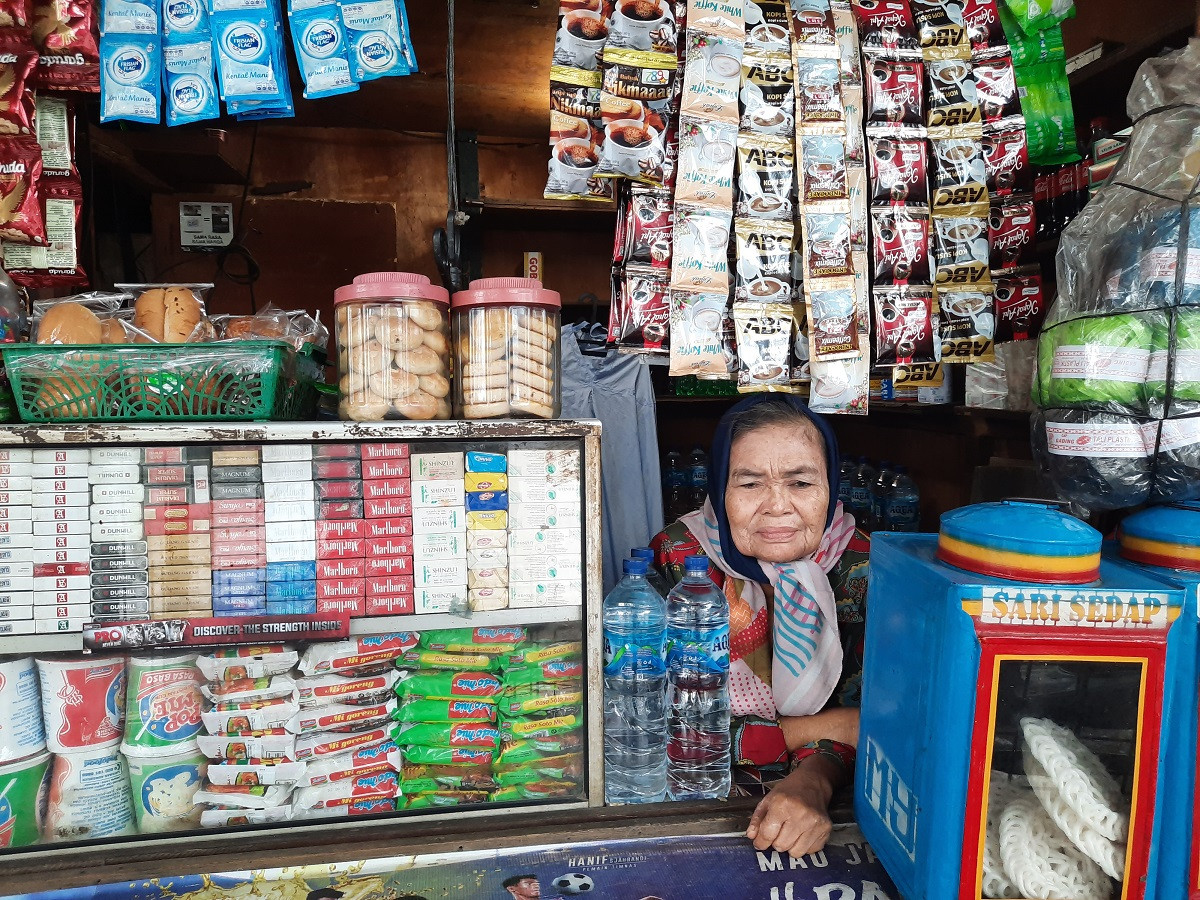Popular Reads
Top Results
Can't find what you're looking for?
View all search resultsPopular Reads
Top Results
Can't find what you're looking for?
View all search resultsTech giants race to digitize ‘warung’
Change text size
Gift Premium Articles
to Anyone
H
omegrown tech giants are tapping into the underserved sector of warung (kiosks), as the COVID-19 pandemic accelerates the digitalization of small and medium enterprises (SMEs).
In a country where small businesses account for more than 60 percent of the economy, warung are the nearest retail spots for many people to make small purchases of snacks or household supplies.
Indonesian unicorn Gojek is the latest player to enter the race with the September launch of GoToko, an online business-to-business (B2B) platform that allows small retailers to access brand principles, give product recommendations and use Gojek to receive stock shipments, among other services.
“We want brands to come on board with us to better cater to the underserved, as it is sometimes difficult to distribute goods to warung,” GoToko CEO and president director Gurnoor Singh Dhillon said during a press briefing on Tuesday, explaining that warung usually bought products in small bulk and often faced difficulties with lengthy distribution chains.
There were an estimated 2.5 million underserved warung in the country, Dhillon added, which did not have access to efficient assortment and reliable logistics support.
Small businesses have been severely impacted by the COVID-19 pandemic, as people have been avoiding leaving their homes over fears of contracting the virus.
Small retailers make up a major chunk of the US$380 billion retail market in Indonesia, according to management consulting company Redseer.
A report by the firm released in April showed that 77 percent of the retail market in Indonesia consisted of unorganized warung with sales of around Rp 1 million ($67.41) to Rp 3 million daily.
Warung often depended on up to 10 different sourcing channels for procurement, the report said. The sector also faced product stockouts, with limited supplies from brands and a credit availability problem. Credit penetration among warung operators is still around 5 percent.
During the pandemic, Redseer reported, online B2B platforms witnessed 10 percent growth in order volumes and 5 percent growth in average order value as a result of retailers increasing their online purchases amid COVID-19 lockdown measures.
“The emerging B2B start-ups aim to empower these warung by leveraging technology for end-to-end solutions, making it a more efficient channel. Hence, there is a growing willingness from the retailers to partner with these start-ups,” Redseer Southeast Asia partner Roshan Raj Behera told The Jakarta Post on Tuesday.
Gojek’s competitor Grab has been digitizing warung since 2017 after it acquired Indonesian online-to-offline (O2O) e-commerce service Kudo and rebranded it as GrabKios.
The platform, which currently has more than 2.8 million partners across more than 505 cities and districts throughout Indonesia, enables small retailers to procure goods for their stores, get access to credit and pay bills through Grab’s ecosystem, among other services.
The country’s e-commerce players, such as Tokopedia and Bukapalak, also have programs to modernize traditional retailers, such as Mitra Tokopedia (Tokopedia Partners) and Mitra Bukalapak (Bukalapak Partners). The later reported that it had partnered with 5.4 million warung and that 30 percent of its revenue came from offline partners.
Bukalapak president Teddy Oetomo said on Sept. 11 that a big portion of the company’s growth had come from outside of Indonesia’s largest cities, also known as tier-one cities, due to the company’s infrastructure penetration through its offline partners.
Institute for Development of Economics and Finance (Indef) researcher Nailul Huda said that e-commerce players were tapping into digitizing warung to broaden their consumer reach while super-app firms Gojek and Grab were looking to enter the e-commerce scene.
With the rise of online shopping, Redseer predicted that Indonesia’s e-commerce gross merchandise value (GMV) would reach $40 billion this year, surpassing India’s e-commerce GMV.
“Tokopedia and Bukalapak can use warung as their sales hubs as they can utilize their warehouse network to reach the small retailers, even in remote places in Indonesia,” he told the Post in a phone interview on Wednesday.
“I think the barrier to enter the e-commerce sector for Grab and Gojek is very small, as they already have payment systems and logistics networks in place. They are also already at the peak of the ride-hailing business, so it is possible that they are looking for a new business model to explore,” Nailul said.
The government aims to have 10 million small businesses go digital by the end of the year to help ease the financial impacts of the pandemic, Cooperatives and Small and Medium Enterprises Minister Teten Masduki said in July.










